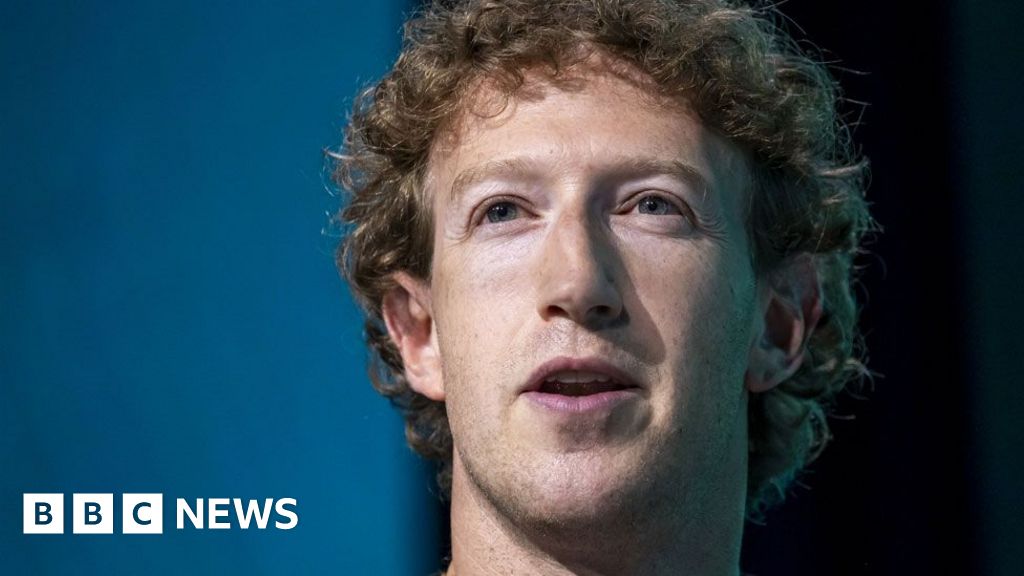Meta to replace “biased” fact-checkers with user moderation
Meta is ditching the use of independent fact-checkers on Facebook and Instagram, replacing them with X-style “community feedback” where feedback on the accuracy of posts is left to users.
In a video clip posted next to it Blog post By the company on Tuesday, CEO Mark Zuckerberg said third-party moderators were “too politically biased” and that “it’s time to go back to our roots on freedom of expression.”
Joel Kaplan, from He will replace Sir Nick Clegg As head of global affairs at Meta, he wrote that the company’s reliance on independent brokers was “well-intentioned” but often led to censorship of users.
However, activists reacted against online hate speech with dismay – and suggested that the motivation behind the change was really about getting on the right side of Donald Trump.
“Zuckerberg’s announcement is a blatant attempt to cozy up to the incoming Trump administration — with damaging implications,” said Ava Lee of Global Witness, a campaign group that describes itself as seeking to hold Big Tech accountable.
She added, “The claim to avoid ‘censorship’ is a political move to avoid taking responsibility for the hate and misinformation encouraged and facilitated by the platforms.”
Meta’s current fact-checking program, introduced in 2016, refers posts that appear to be false or misleading to independent organizations to evaluate their credibility.
Posts flagged as inaccurate can display labels that give viewers more information about why, and are moved lower in users’ feeds.
“In the US first” will now be replaced by community feedback. Meta says she has no immediate plans to make changes in the EU. The BBC asked about its intentions for the United Kingdom, but the company has not yet commented.
The new system — which the tech giant says it has seen “work on X” — involves people with different viewpoints agreeing on feedback that adds context or clarification to controversial posts.
The British Molly Rose Foundation described the announcement as a “major concern about online safety.”
Its chairman, Ian Russell, said: “We are urgently clarifying the scope of these measures, including whether this will apply to suicide, self-harm and depressive content.”
“These movements could have serious consequences for many children and young people.”
dead One blog said it would “also work to undo the mission creep” of rules and policies – highlighting the removal of restrictions on topics including “immigration, gender and gender identity” – saying these had led to political debate and discussion.
“It’s not right for things to be said on television or on the floor of Congress, but not on our platforms,” she said.
These changes come as technology companies and their executives prepare for the inauguration of President-elect Donald Trump on January 20.
Trump has previously been an outspoken critic of Meta and its approach to content moderation, calling Facebook “the enemy of the people” in March 2024.
But relations between the two men have improved since then – Mr. Zuckerberg Dinner at Trump’s Florida estate At Mar-a-Lago in November. Meta also donated $1 million To Trump’s inauguration fund.
“The recent election also appears to be a cultural turning point toward prioritizing freedom of expression once again,” Zuckerberg said in the video on Tuesday.
Mr Kaplan’s replacement of Sir Nick Clegg – the former Liberal Democrat deputy prime minister – as head of the company’s global affairs has also been interpreted as a signal of the company’s shift in approach to moderation and its changing political priorities.
The changes reflect a trend that “has seemed inevitable over the last few years, especially since Musk’s acquisition of Company X,” said Kate Klonick, an associate professor of law at St. John’s University School of Law.
“Private management of expression on these platforms is increasingly becoming a political point,” she told BBC News.
She added that while companies had previously faced pressure to build trust and safety mechanisms to deal with issues such as harassment, hate speech and misinformation, a “radical swing in the opposite direction” was now taking place.



